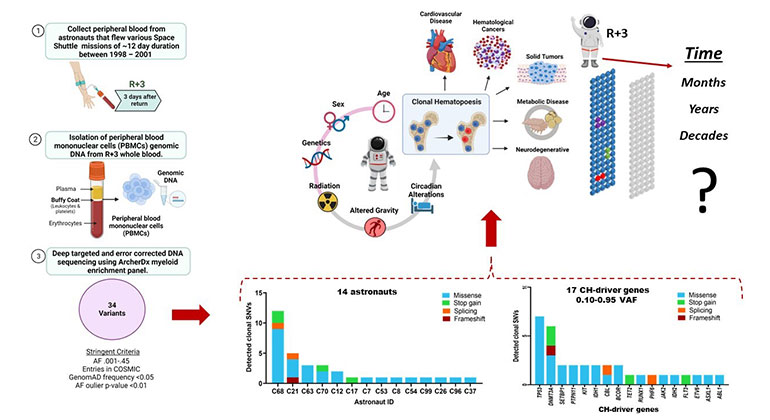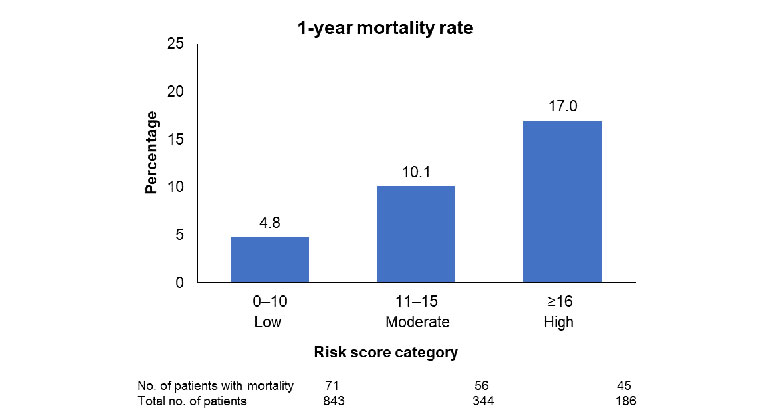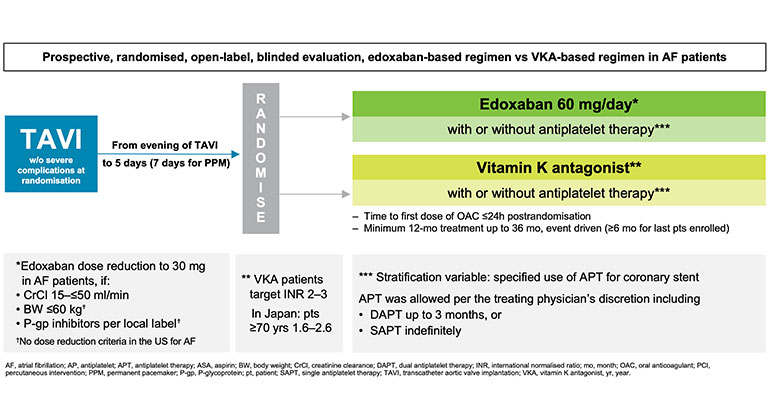Facts About Cardiovascular Medicine at Mount Sinai
Mount Sinai Heart is among the world's leading centers for cardiovascular medicine, offering the newest advances in cardiology.
Internationally recognized as a leading center for cardiovascular medicine, The Mount Sinai Medical Center offers advanced diagnostic and therapeutic technologies to care for heart patients of all ages.
Mount Sinai Heart is among the world's leading centers for cardiovascular medicine, offering the newest advances in cardiology – from minimally invasive imaging and heart surgery to state-of-the-art transplantation.
Unparalleled Success
- Mount Sinai Heart is led by world renowned cardiologist Valentin Fuster, MD, PhD, who was named a "Legend of Cardiovascular Medicine" by the American College of Cardiology in 2012 and was recently recognized by the American Heart Association with the Research Achievement Award.
- Mount Sinai’s catheterization laboratory handles the largest volume in the country, while remaining one of the nation’s safest. The interventional cardiology program has grown from a total catheterization lab volume of more than 14,000 annual cases per year in 2007 to almost 20,000 in 2011. As volume has grown, complication and mortality rates have been among the lowest in the region, earning Mount Sinai and its physicians the highest double-star safety rating by the New York State Department of Health for 15 years in a row. Over five years, mortality in percutaneous interventions is at 0.21 percent and major complications at 0.52 percent.
- Mount Sinai Heart is an international destination for the treatment of heart valve diseases, from mitral valve prolapse to aortic stenosis. Our top cardiologists have invented devices and pioneered techniques used worldwide. A leader in mitral valve reconstruction, Mount Sinai sets the standard for national benchmarks with a 99 percent success rate.
Innovative Techniques
- Sub-Cellular and Nano Medicine
Launched in the spring of 2006, the Center for Molecular Cardiology (CMC) is unique in the scope and scale of its research on congenital heart defects in children. Under the leadership of founding scientific director, Bruce D. Gelb, MD, a pediatric cardiologist specializing in cardiovascular genetics and heart transplantation, the Center uncovers the causes of congenital and acquired heart problems of childhood, and translates discoveries into healthcare strategies that improve the lives of children with heart problems. - Genetics
The expert physicians in the Cardiovascular Genetics Program at Mount Sinai Heart diagnose, prevent and treat inherited cardiac defects. Highly specialized molecular tests like genetic linkage, collagen synthesis and FISH analysis identify patients affected with or at risk for specific cardiovascular diseases. Using cutting-edge approaches based on the Human Genome Project, these tests have led to important discoveries in genetics, including the Marfan syndrome gene and a gene for inherited patent ductus arteriosus. - Advanced Imaging
The Cardiovascular Imaging Center, led by the internationally renowned investigators, Zahi Fayad, PhD, and Jagat Narula, MD, PhD, at Mount Sinai Heart houses the latest state-of-the-art diagnostic equipment. Mount Sinai is among the first in the world to combine an MRI and PET in a single machine, and is the first medical center in the United States to use cadmium zinc telluride, the latest generation of imaging cameras for stress testing, resulting in faster, safer, and more accurate detection of heart disease. The cadmium zinc telluride technology improves image quality and significantly reduces patient exposure to radiation, cutting the imaging time of 15 to 20 minutes down to only two or three. The opening of the new Leon and Nora Hess Center for Science and Medicine will take visualization technology to new levels with emerging modalities like bioluminescent and fluorescent imaging.
Mount Sinai Milestones
- 2012 – The FREEDOM trial—considered the highest impact publication of 2012—was headed by Dr. Fuster and showed that people with diabetes and several clogged heart arteries fare significantly better with bypass surgery than stents.
- 2012 – Performed by Vivek Y. Reddy, MD, Mount Sinai is the first in the U.S. to use the HeartLight Endoscopic Ablation System (EAS) to correct abnormal electrical signals inside the heart of a patient affected by atrial fibrillation (AFib). The device is the first catheter ablation system to incorporate a camera that allows doctors to see a direct, real-time image of the patient’s heart tissue during ablation.
- 2011 – Dr. Narula develops new imaging approach to visualize how blood flows through the heart. The discovery helped improve diagnosis of heart failure and continues to help researchers identify novel ways of using pacemaker therapy for treating it.
- 2011 – Mount Sinai performs the first implantation of a new device for aortic stenosis in the United States. Designed to replace a diseased aortic heart valve percutaneously via a catheter, the device provides a safe and less invasive alternative to open heart surgery.
- 2010 – Roger Hajjar, MD, and collaborators at the Icahn School of Medicine at Mount Sinai developed the first worldwide gene therapy that is safe and effective in reversing advanced heart failure.
- 2010 - Researchers for the first time differentiated human stem cells to become heart cells with cardiomyopathy, a condition in which the heart muscle cells are abnormal. The discovery will allow scientists to learn how those heart cells become diseased and from there, they can begin developing drug therapies to stop the disease from occurring or progressing.
- 2009 – Dr. Reddy and Srinivas R. Dukkipati, MD, are the first in the country to perform a non-surgical procedure using sutures to tie off a left atrial appendage (LAA), which is the source of blood clots leading to stroke in patients with atrial fibrillation (AF). AF is the most common sustained heart-rhythm disorder in the United States.
- 2009 – David H. Adams, MD, an internationally renowned leader in the field of heart valve surgery and mitral valve reconstruction, won the American Heart Association's 2009 Achievement in Cardiovascular Science and Medicine Award.
- 2007 – Dr. Fayad and colleagues developed a synthetic molecule that delivers an imaging enhancer to cholesterol-filled cells embedded in the arterial walls. The new technique would allow physicians to diagnose unstable plaques before they rupture, and save lives by identifying the highest risk patients.
- 2006 – Samin K. Sharma, MD, received the Governor's Award for Excellence for his outstanding achievements in the area of interventional cardiology in New York. Dr. Sharma is the No. 1 ranked interventional cardiologist in New York State, with the highest number of cases and an extremely low complication rate.
- 2003 – Mount Sinai performs first cellular transplant for congestive heart failure; a new approach to heart failure treatment, replacing non-functional heart tissue with actively contracting muscle.
- 2003 – Led a major study that demonstrated the safety and efficacy of a new generation of anticoagulants in preventing stroke in patients with atrial fibrillation. The new treatment, xielagatran proved far less toxic than the traditional treatment, warfarin, involved no interactions with other substances in the body and obviated the need for frequent blood test monitoring and dosage adjustments.
- 2000 – Dr. Fayad developed the first black blood MRI, a non-invasive imaging technique that causes blood to appear dark while vessel walls appear bright, allowing cardiologists to identify thickening of the artery wall, an indication of otherwise undetectable vulnerable plaque.
- 1997 – Reported the results of the largest clinical trial of heart attack survivors beyond hospital discharge, defining the best approach to preventing a second heart attack, stroke or death using clot-preventing medications.
- 1987 – J. Anthony Gomes, MD, and others develop a non-invasive index of the risk of sudden death among heart attack survivors based upon a combination of signal averaged electrocardiography, Holter monitoring, and left ventricular function.
- 1987 – Lina and Juan Jose Badimon, both PhD, develop a perfusion chamber (known as the Badimon chamber) to perform controlled evaluations of blood flow, platelet deposition and thrombus formation in various conditions. These became fundamental tools for future work on coronary artery thrombosis.
- 1985 – John Ambrose, MD, Dr. Fuster, and colleagues describe the relationship between complex angiographic coronary lesion morphology and acute coronary events
- 1984 – First utilized intra-operative transesophageal color-flow Doppler echocardiography to guide the hand of the cardiac surgeon in the operating room, allowing moment-to-moment decisions during heart valve repair and replacement.
About the Mount Sinai Health System
Mount Sinai Health System is one of the largest academic medical systems in the New York metro area, with more than 43,000 employees working across eight hospitals, over 400 outpatient practices, nearly 300 labs, a school of nursing, and a leading school of medicine and graduate education. Mount Sinai advances health for all people, everywhere, by taking on the most complex health care challenges of our time — discovering and applying new scientific learning and knowledge; developing safer, more effective treatments; educating the next generation of medical leaders and innovators; and supporting local communities by delivering high-quality care to all who need it.
Through the integration of its hospitals, labs, and schools, Mount Sinai offers comprehensive health care solutions from birth through geriatrics, leveraging innovative approaches such as artificial intelligence and informatics while keeping patients’ medical and emotional needs at the center of all treatment. The Health System includes approximately 7,300 primary and specialty care physicians; 13 joint-venture outpatient surgery centers throughout the five boroughs of New York City, Westchester, Long Island, and Florida; and more than 30 affiliated community health centers. We are consistently ranked by U.S. News & World Report's Best Hospitals, receiving high "Honor Roll" status, and are highly ranked: No. 1 in Geriatrics and top 20 in Cardiology/Heart Surgery, Diabetes/Endocrinology, Gastroenterology/GI Surgery, Neurology/Neurosurgery, Orthopedics, Pulmonology/Lung Surgery, Rehabilitation, and Urology. New York Eye and Ear Infirmary of Mount Sinai is ranked No. 12 in Ophthalmology. U.S. News & World Report’s “Best Children’s Hospitals” ranks Mount Sinai Kravis Children's Hospital among the country’s best in several pediatric specialties.
For more information, visit https://www.mountsinai.org or find Mount Sinai on Facebook, Twitter and YouTube.
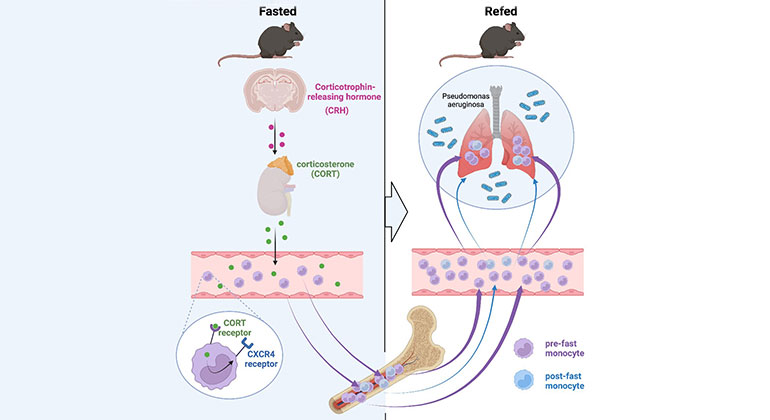
Skipping Breakfast May Compromise the Immune System
Feb 23, 2023 View All Press Releases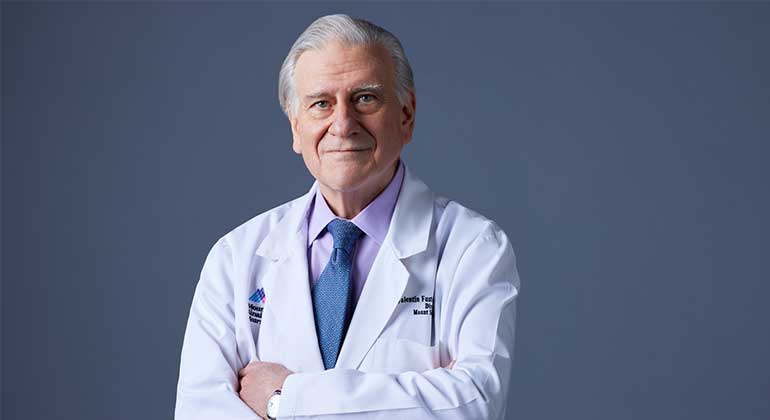
Valentin Fuster, MD, PhD, Named President of Mount Sinai Heart
Oct 18, 2022 View All Press Releases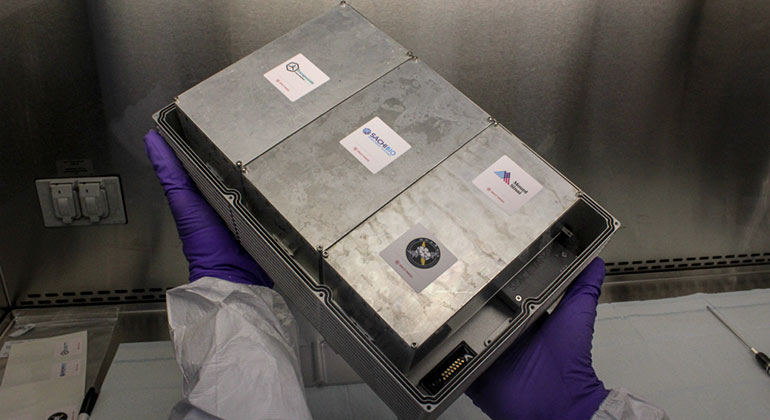
.jpg)
